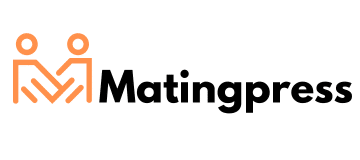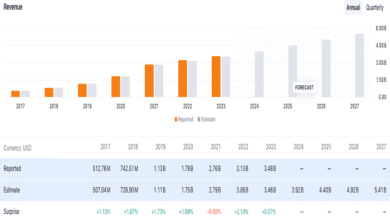Navigating the World of Small Business Loans

Starting and growing a business often requires substantial financial support, and small business loans play a crucial role in this journey. Whether you’re launching a startup or expanding an existing enterprise, understanding the various aspects of small business loans can help you make informed decisions. This comprehensive guide explores the different types of small business loans, their benefits, application processes, and essential tips to secure the funding your business needs to succeed.
What Are Small Business Loans?
Small business loans are financial products designed to provide capital to entrepreneurs and business owners for various purposes, such as starting a new venture, expanding operations, purchasing inventory, or managing cash flow. These loans come in different forms, including term loans, lines of credit, and SBA loans, each tailored to meet specific business needs. Understanding the nature of buiness time is essential for selecting the right funding option that aligns with your business goals and financial situation.
Types of Small Business Loans
There are several types of small business loans available, each with distinct features and benefits. Common options include term loans, which provide a lump sum with fixed repayment terms; lines of credit, offering flexible access to funds as needed; equipment financing, specifically for purchasing business equipment; and invoice financing, which leverages outstanding invoices for immediate cash flow. Additionally, SBA-backed loans offer favorable terms and lower interest rates, making them an attractive choice for many small businesses seeking reliable funding solutions.
Benefits of Small Business Loans
Small business loans offer numerous benefits that can significantly impact the growth and stability of your business. They provide the necessary capital to invest in new projects, hire additional staff, or expand into new markets. Access to small business loans can also improve cash flow management, allowing you to cover unexpected expenses and maintain smooth operations. Moreover, successfully repaying a small business loan can enhance your credit score, making it easier to secure future financing and build a strong financial foundation for your business.
How to Qualify for a Small Business Loan
Qualifying for a small business loan involves meeting specific criteria set by lenders. Key factors include having a solid business plan, demonstrating consistent revenue streams, maintaining a good credit score, and providing necessary financial documentation such as tax returns and financial statements. Lenders also consider the length of time your business has been operational and its overall financial health. Understanding these requirements can help you prepare effectively and increase your chances of securing the small business loans you need to drive your business forward.
Application Process for Small Business Loans
The application process for small business loans typically involves several steps. First, you’ll need to assess your funding needs and choose the appropriate type of loan. Next, gather all necessary documentation, including financial statements, business plans, and personal financial information. Submit your application to the chosen lender, whether it’s a traditional bank, credit union, or online lender. The lender will then review your application, assess your creditworthiness, and determine your eligibility for the small business loans. Finally, if approved, you’ll receive the funds and begin the repayment process according to the loan terms.
Interest Rates and Terms for Small Business Loans
Small business loans come with varying interest rates and repayment terms, which can significantly impact your overall cost of borrowing. Interest rates may be fixed or variable, depending on the lender and loan type. Fixed rates provide stability with consistent monthly payments, while variable rates can fluctuate based on market conditions. Repayment terms can range from a few months to several years, depending on the loan amount and purpose. Understanding the different interest rates and terms associated with small business loans is crucial for selecting a loan that aligns with your financial capabilities and business objectives.
Securing a Small Business Loan with Bad Credit
Securing a small business loan with bad credit can be challenging, but it’s not impossible. Some lenders specialize in working with businesses that have less-than-perfect credit histories. To improve your chances, focus on demonstrating your ability to repay the loan through a solid business plan, steady cash flow, and collateral. Additionally, consider alternative financing options such as microloans or invoice financing, which may have more flexible credit requirements. Taking steps to improve your credit score and showcasing your business’s potential can also enhance your prospects of obtaining small business loans despite a poor credit record.
Alternatives to Traditional Small Business Loans
While traditional small business loans from banks are a common funding option, there are several alternatives available that might better suit your needs. These include online lenders, which often offer faster approval and more flexible terms; crowdfunding platforms, allowing you to raise funds from a large pool of investors; and peer-to-peer lending, where individuals lend directly to businesses. Additionally, grants and angel investors can provide non-repayable funding or equity investments. Exploring these alternatives can help you find the right financing solution tailored to your business’s unique circumstances and growth plans.
The Role of Credit Scores in Small Business Loans
Your credit score plays a pivotal role in securing small business loans. Lenders use credit scores to assess your creditworthiness and determine the level of risk associated with lending to your business. A higher credit score generally results in more favorable loan terms, including lower interest rates and higher loan amounts. Conversely, a lower credit score may limit your options and lead to higher borrowing costs. It’s essential to monitor and improve your credit score before applying for small business loans by paying bills on time, reducing debt, and correcting any inaccuracies in your credit report.
Tips for Successfully Repaying Small Business Loans
Successfully repaying a small business loan is crucial for maintaining your business’s financial health and building a positive credit history. To ensure timely repayments, create a detailed repayment plan that aligns with your cash flow projections. Prioritize your loan payments and consider setting up automatic payments to avoid missing due dates. Additionally, communicate with your lender if you encounter financial difficulties, as they may offer alternative repayment options. By managing your finances effectively and adhering to your repayment schedule, you can fulfill your small business loan obligations and strengthen your business’s financial standing.
Conclusion
Small business loans are a vital tool for entrepreneurs looking to start, grow, or sustain their businesses. By understanding the different types of loans, their benefits, and the application process, you can make informed decisions that align with your business goals. Whether you have excellent credit or are seeking alternative financing options, there are solutions available to meet your needs. Properly managing and repaying your small business loans can pave the way for long-term success and financial stability, ensuring your business thrives in a competitive marketplace.
FAQs
1. What are the main types of small business loans?
The main types of small business loans include term loans, lines of credit, equipment financing, invoice financing, and SBA-backed loans. Each type serves different business needs, such as purchasing equipment, managing cash flow, or expanding operations.
2. How can I improve my chances of getting a small business loan?
To improve your chances of obtaining a small business loan, ensure you have a solid business plan, maintain a good credit score, demonstrate consistent revenue, and provide comprehensive financial documentation. Additionally, choosing the right type of loan and lender can enhance your prospects.
3. Are there small business loan options for startups?
Yes, there are small business loan options specifically designed for startups. These may include microloans, SBA loans, and online lenders that cater to businesses in their early stages by offering flexible terms and lower qualification requirements.
4. What should I include in my small business loan application?
Your small business loan application should include a detailed business plan, financial statements, tax returns, personal and business credit reports, and any collateral you can offer. Providing comprehensive and accurate information increases the likelihood of loan approval.


